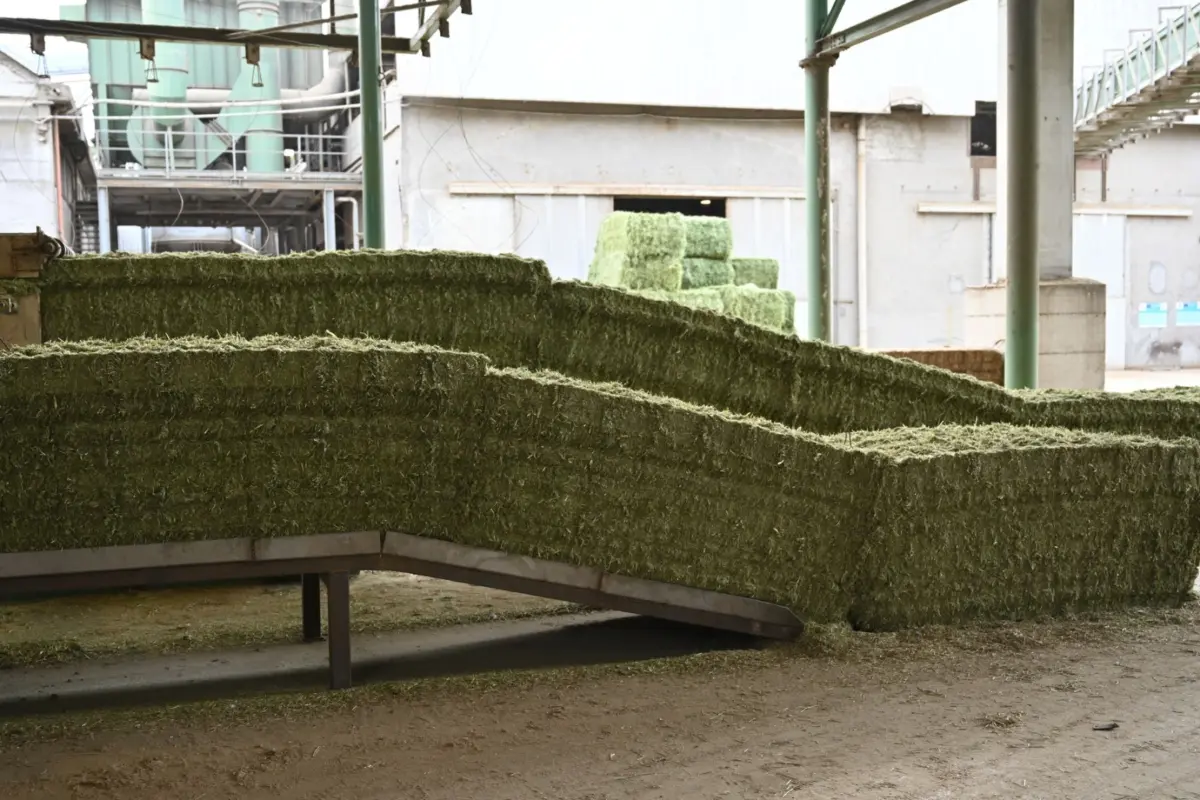
Alfalfa: World Congress Debuts in Europe
Event will be held in Reims (France), from 3 to 6 November 2025. Aife among the organizers

Huyghe (Scientific Committee): "Product increasingly crucial for EU agriculture".
From 3 to 6 November 2025, the city of Reims, France, will host the World Alfalfa Congress (world-alfalfa-congress.com) which for the first time lands in Europe. The organization of the event is entrusted to the Inter-union Commission of European Dehydrators (Cide) which includes the national Associations of Italy, with Aife/Filiera Italiana Foraggi (www.aife.eu), Spain, France, Germany, Holland and Bulgaria for a total of 160 associated dehydration companies.
The event will bring together scientists, experts and professionals from around the world to share experiences and discuss how to address future challenges in the sector.
To find out more, we interviewed the president of the scientific committee of the World Congress , Christian Huyghe .
Dr. Huyghe, first of all, what are the main objectives of this important international event?
The scientific and productive worlds will meet at an event that will be held in Europe for the first time. It will therefore be an opportunity to share the progress of research and innovation in the production and use of alfalfa to underline its importance. For this reason, in agreement with the Organizing Committee composed of representatives of all the National Associations of the European countries adhering to Cide, we have divided the Congress into several dedicated sessions and provided a space for a group of 16 young people, belonging to both the academic and business worlds and coming from different nations, where they will be able to exchange views and illustrate their presentations.
In your opinion, is it desirable that in the new CAP dehydrated fodder and alfalfa in particular take on a key role for European agriculture?
I would say so. I believe that the peculiarities of alfalfa represented by its ability to fix nitrogen in the soil and guarantee a high protein content, fundamental in animal nutrition, must have adequate recognition within the CAP because they are decisive aspects in the future vision of agriculture: the subsequent dehydration phase is an added value that is linked to the commercial aspect in a supply chain logic.
Will there be time during the Congress for an update on scientific research aimed at genetic improvement of alfalfa?
This will be a central theme in all the sessions planned for the Congress. We have decided to create a sort of fil rouge with interventions that, by linking together, will address each production phase of alfalfa, showing how genetic improvement integrates with the evolution of cultivation systems. There will therefore not be a specific session dedicated exclusively to selectors and geneticists, but several presentations that will illustrate the most recent advances in the field of genetics at the service of agricultural and food systems related to alfalfa.
Do you already have an estimate of how many countries will participate in the Congress?
Not yet, but we know that presentations and posters will be coming from 14 different countries representing all continents.
Do you think that alfalfa is one of the major players in environmental protection and improving animal welfare?
Agricultural and food systems are called to be increasingly sustainable and for this reason they will have to be able to combine productive, environmental and social performances. Alfalfa can help improve animal welfare within production systems that are enriched and designed to increase it. I believe that instead of using the term environmental protection today it is more correct to talk about environmental restoration, an objective that can be achieved with a drastic reduction in greenhouse gas emissions, enhancing and promoting biodiversity to favor the supply of ecosystem services that agriculture, and more generally human activities, need, without forgetting the improvement of the state of irrigation water through more correct management of fertilizers. The biological and agronomic characteristics of alfalfa are ideal for the design of new production systems that further enhance the biomass produced and its fractions.
EFA News - European Food Agency